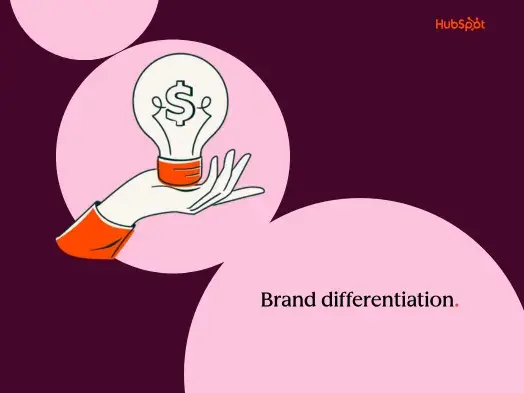What is a personal brand statement?
A personal brand statement is a couple of sentences that highlights your unique skills and experience. It’s meant to be a quick introduction to people who discover you online because it summarizes what you can offer them.
Basically, it’s a catchphrase, tag line, or elevator pitch for you as a professional individual. While it showcases what you do professionally, you can also display your personality.
Why leaders should have a personal brand statement
You make a better first impression
As the saying goes, “You only have one shot to make a first impression.” The challenge for entrepreneurs is that you don’t always know when that opportunity arises, as many first impressions happen online.
When a potential client or investor hears about you, their first instinct is to look up your social media profiles. If you’ve got a clear and well-thought-out personal brand statement, you’ve got a better chance at making them stick around for second and third impressions.
You can establish yourself as a thought leader
Thought leadership is a powerful content marketing tactic that can help you reach bigger audiences and generate leads for your business. When you’re known as a leader in your particular industry, that automatically gives you a higher level of credibility.
A personal brand statement can strengthen your thought leadership strategy by clearly stating your area of expertise.
You can create networking opportunities
Whether you’re looking for top talent, new clients, or potential investors, networking is half the battle.
Personal brand statements make it easy for potential connections to understand exactly what you do and what you value. Without it, you may miss out on opportunities simply because they didn’t know that you had something relevant to offer them.
Best personal brand statement examples for leaders
“Bilingual creative who lives at the intersection of business & design.” —Chris Do

Source: Chris Do’s LinkedIn page.
Chris Do is a multi-hyphenate: a designer, creative strategist, public speaker, founder, and CEO of The Futur, an online education platform.
What makes it great: Because he wears so many hats, Do’s personal branding statement is better than trying to explain everything he does.
“Helping people find their zen in the digital age.” —Shama Hyder

Source: Shama Hyder’s homepage.
Shama Hyder is the founder and CEO of Zen Media, a marketing and PR firm. She’s also written a book about digital marketing.
What makes it great: Hyder’s brand statement is an attention-grabbing play on her company’s name and showcases one of her key values: making clients feel a sense of calm in a fast-paced digital world.
“Write better sales emails faster with our in-inbox coach.” —Will Allred

Source: Will Allred’s LinkedIn page.
Will Allred is the co-founder of Lavender, an AI-powered email software startup.
What makes it great: Brooklin Nash, CEO of Beam Content, shares, “In one sentence, Allred captures the entire focus of his social presence: to help salespeople write better emails faster while demonstrating his authority and sharing his product in the second part of that headline.”
“Keeping it awkward, brave, and kind.” —Brené Brown

Source: Dr. Brené Brown’s homepage.
Brené Brown has a Ph.D. in sociology and is the author of several books that cover topics like shame, vulnerability, empathy, and courage.
What makes it great: Dr. Brown’s personal brand statement embodies her mission statement of encouraging people to embrace their vulnerabilities by sharing her own.
“Empowering ridiculously good marketing.” —Ann Handley

Source: Ann Handley’s homepage.
Ann Handley is a digital marketing expert and bestselling author. Her company helps marketers get tangible results.
What makes it great: Sharon Jonah, creative director and founder of digital marketing agency Buzz Social, shares, “In four words, we understand what Handley does, how she does it, whom she’s speaking to, and how she speaks.”
“Still just a girl who wants to learn. Youngest-ever Nobel laureate, co-founder @malalafund and president of Extracurricular Productions.” —Malala Yousafzai

Source: Malala Yousafzai’s Twitter profile.
Malala Yousafzai is the youngest Nobel laureate and an activist whose fund aims to remove the barriers to female education around the world.
What makes it great: Her bio highlights her impressive achievements with language that makes her sound relatable.
“Marketing. Strategy. Humanity.” —Mark Schaefer

Source: Mark Schaefer’s homepage.
Mark Schaefer is an educator, speaker, marketing consultant, and author. He’s developed corporate marketing strategies for brands like Microsoft, IBM, and AT&T.
What makes it great: “It’s subtle, concise, and creative. It describes what Schaefer does, what he focuses on, and his unique and distinguished approach,” says Omer Usanmaz, CEO and co-founder of mentoring and learning software Qooper.
“Empowering successful women to take control of their finances.” —Jennifer Welsh

Source: Jennifer Welsh’s LinkedIn profile page.
Jennifer Welsh founded Money School, a digital course that teaches women about personal finance.
What makes it great: Welsh’s strong personal brand statement says exactly what she does and whom she does it for.
“Let’s make Excel the solution, not the problem.” —Kat Norton (Miss Excel)

Source: Miss Excel’s homepage.
Kat Norton (known as Miss Excel) became famous on TikTok for her bite-sized Microsoft Excel tutorials. She now offers Excel courses on her website.
What makes it great: Norton’s clever statement shows that she understands her audience's problem and highlights her personality.
“‘The Customer Whisperer.’ I help marketers discover the hidden reasons why customers buy so they can become un-ignorable.” —Katelyn Bourgoin

Source: Katelyn Bourgoin’s LinkedIn page.
Katelyn Bourgoin is a creator and serial entrepreneur who founded a branding agency, a mentoring platform for female entrepreneurs, and a restaurant consulting firm. She trains entrepreneurs to uncover what makes their products “un-ignorable.”
What makes it great: Bourgoin’s clever branding statement effectively tells marketers that she can help them understand their customers better and make their brands memorable.
How to write a personal brand statement
Writing an effective personal brand statement can be tough because it requires you to be catchy yet compelling. It should give audiences all the necessary information in a sentence or two.
Here are some tips for writing your own:
Think about your unique value proposition
A unique value proposition (or unique selling point) is what makes you different. It tells people why they should try your product or service, network with you, or invest in your business.
Tip: Identify your core values, goals, and strengths.
If you don't know what those are, ask yourself:
- Why am I building my brand?
- What do I want my audience to know me for?
- How do I do things differently?
- Do I have a distinct skill set, experience, point of view, or passion?
- What value do I bring to my audience?
Keep it short and sweet
Your brand statement should be simple and easy to understand.
The goal is to have someone look at your profile or website and immediately understand who you are and what you do, so keep it brief. Keep in mind that you don’t need full sentences either.
Start by writing one to three sentences that outline what you do, for whom, and how you do it. You can also add a sentence about values.
Then, look at different ways you can shorten them. Or pick out the most specific and impactful words and see what happens when you simply list them.
Showcase your personality
Injecting your personality empowers you to share what you do without being bland or boring. Being authentic also helps attract like-minded customers, investors, and peers.
At the end of the day, there are other people out there who may offer similar services or solve the same problems for your target audience. Your personality can set you apart.
“Don't be afraid to inject a bit of humor, quirkiness, and passion. It’ll help make you more memorable and help you stand out from the crowd,” says Usanmaz.
Ideally, you want customers to know what you do and get a little taste of what it will be like to work with you.
A personal brand statement conveys your mission, differentiates you from competitors, and attracts your target audience. Use these tips and real-life examples of personal brand statements to inspire you to write your own.
.png?width=112&height=112&name=Image%20Hackathon%20%E2%80%93%20Vertical%20(81).png)

.webp)


![10 creative company profile examples to inspire you [+ 8 templates]](https://53.fs1.hubspotusercontent-na1.net/hubfs/53/Operation-everest-Company-Profile-1-20250916-5779688.webp)
![14 Best Corporate Social Responsibility Examples [+Trends]](https://53.fs1.hubspotusercontent-na1.net/hubfs/53/corporate-social-responsibility-examples.png)


